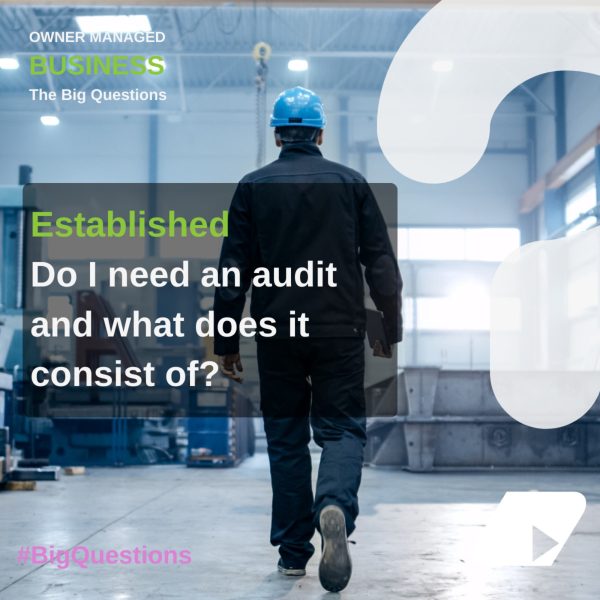Article
Why are the Big 4 separating audit?
Article
Why are the Big 4 separating audit?
October 2, 2020
4 minute read
Steve Neal discusses why the Big 4 are seperating audit

The last few months have seen changes that none of us had imagined other than, perhaps, in our nightmares as a result of ill-judged bed time reading (or too much cheese). The life of an auditor tends not to see very much change however, it would appear that change is now afoot in the higher echelons of our little audit universe.
It has not gone unnoticed that (bad) publicity has befallen several of the largest audit firms: we can go back to the days of Enron (that led to the collapse of Arthur Anderson) and, more recently, serious accounting failures have resulted in auditors being hauled over the coals. We can all remember Carillion, Thomas Cook, Patisserie Valerie and to that list you can add less well known names such as Redcentric and German fintech company Wirecard.
One of the Big 4 has just received a £15m fine for one of its auditing failures – the largest fine so far recorded. In addition to this PI premiums rocket to cover the likely outcome of legal action. And the effect on those PI premiums ripples its way down the food chain to the smaller firms too. The same has happened in the legal profession.
But what next?
Auditors are regulated by the FCA who delegate the detail to the Financial Reporting Council (FRC) who in turn delegate regulatory oversight to the ACCA and ICAEW, the accounting bodies to which most UK accountants in practice belong. In response to the accounting scandals of recent years the FRC published guidelines in July 2020 for the separation of the audit functions of the Big Four firms. Now, Deloitte has become the first firm to announce an independent audit governance board which take responsibility, from 1 January 2021, to oversee the Deloitte UK audit practice.
Why will this help?
One of the problems is independence. Firstly, no audit partner enjoys having the difficult conversation about an audit qualification with a client. Secondly, the client may leave if you’re the auditor that issues a qualification – justifying the loss of fees to your fellow partners is perhaps more unpleasant than the qualification discussion. But, thirdly, many of the large audit firms generate large consultancy income from their audit clients – often these consultancy fees are greater than the audit fees so there is threat to auditor independence; will the auditor risk losing the audit if it means losing significant lucrative consultancy income.
Consequently, the regulator asked the Big 4 to separate their audit businesses from the rest of their fee base and they were given until 2024 to complete the split. There are safeguards for smaller firms to help prevent similar conflicts of interest – or lack of independence. Furthermore, consultancy fees in smaller firms are usually harder to come by and therefore there is less fee pressure to affect auditor independence.
But there are concerns that affect all practice sizes. I refer above to the audit ‘client’. There is a case that auditors should not refer to their customers as clients because this suggests too cosy a relationship at the outset. I don’t subscribe to that view but I take the point.
The fact is that the smaller company wants a trusted advisor that understands the business and it is more cost efficient for that person to also undertake the audit: as long as professional standards are maintained.
Perhaps the answer is that audit fees are not paid by the company directly to the auditor. Perhaps all audited companies should instead pay an audit levy to the FRC and the FRC divides the spoils amongst all the auditors. How that would work in the real world seems like a problem too far. Or, in fact, a nightmare… perhaps I have been eating too much cheese after all.
An audit is designed to be a driver of value and trust; if you feel that you are not getting value from your auditor or trust has been weakened, it might be time to look for a new adviser. Contact me, Steve Neal on steve.neal@shawgibbs.com or call 01865 292200 for an informal discussion on how we support your business.
Related content
Need expert advice?
Speak to an expert for advice on
+44-1865 292200 or get in touch online to find out how Shaw Gibbs can help you
Email
info@shawgibbs.com
Need expert advice?
Speak to an expert for advice on
+44-1865 292200 or get in touch online to find out how Shaw Gibbs can help you
Email
info@shawgibbs.com


